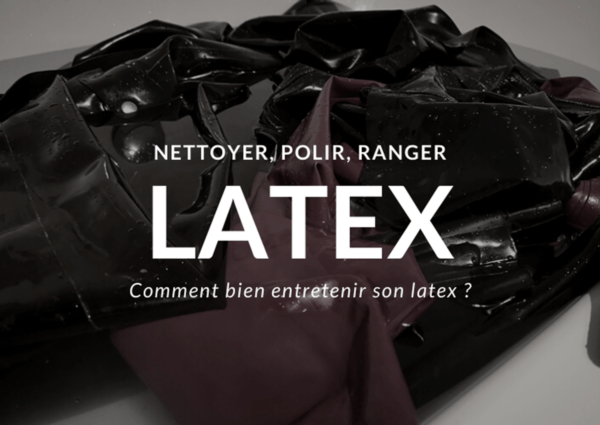You will receive updated information. You will need to understand whether the company considers you as a current employee. They then searched U.S. Securities and Exchange Commission filings for details of how the companies employee stock options were to be treated in the event of a merger or acquisition. As soon as they vest, they are no longer restricted and are treated exactly the same as if you had bought your companys shares in the open market. Investors with unvested stock options or RSUs are in a more difficult position. The stock in the old company ceases to exist when they are acquired. Some executives are surprised to learn that the reason they leave your job can impact what happens to their stock options or RSUs. Until the terms of the merger or acquisition are finalized, employees wont have answers to the lingering questions about what will happen to their stock compensation. Consider diversifying over a few years. There is typically no change to your vesting schedule. National Tax Policy Among the most notable changes include a, Information on this website is for informational purposes only and should not be misinterpreted as personalized advice of any kind or a recommendation for any specific investment product, financial or tax strategy. Im wondering how may my unvested stock option keep their value. Consider investing the proceeds from your equity compensation by funding tax-advantaged accounts, which are savings accounts that are exempt from taxes today or in the future or that offer other tax benefits. In which case(s) can one receive Restricted Stock Units (RSUs) before they vest? When agreements provide latitude to the board, or are silent, the strategic position of your company in negotiating with the acquiring company over the terms of the sale will often drive the terms of acceleration. They found that in 80% of M&A deals, the merger agreements enabled the acquiring companies to cancel at least some employee stock options and not replace them with new, equity-based grants. provision for additional vesting upon Mistake No. However, it can be a constraint, affecting how a deal is structured, as well as the costs to your company and the buyer. This is a general communication should not be used as the basis for making any type of tax, financial, legal, or investment decision. Companies typically issue a grant of options or RSUs with your first job offer, followed by refreshers either annually or as a bonus. Whether options were cashed out, assumed, or canceled varied with the type of option. IANAL, but I don't think they can unilaterally change the terms of your grant so you're worse off (unless the grant documents said they could unilaterally change the terms of your grant at any time, for any reason.) What happens to stocks after acquisition? As weve seen in the last 12 months, a downturn in the economy can decimate peoples financial safety. If you hold exercised incentive stock options (ISOs), it would be beneficial to sell your stock options that meet the special holding requirement (i.e. For example, 76.4% of vested in-the-money stock options those in which the target firms market price was higher than the price for which employees could acquire their stock were cashed out at current prices, giving employees the current value of the stock but costing them any expected future gains. In the Takeda acquisition of Shire, awards were converted on a predetermined valuation outlined in the terms of the deal. Part 1 of this series examines the importance of your options' terms. UPDATE ISS Equity Plan Scorecard EPSC 2.0. This will have minimal tax consequence. Your company is being acquired. The agreements constitute contractual rights you have with your employer. They also analyzed the stock prices of the target companies and the acquiring companies for four weeks before and four weeks after the deals were announced. How do I align things in the following tabular environment? Especially for workers who join promising startup companies, stock options make up an attractive part of their compensation packages. The difference between the phonemes /p/ and /b/ in Japanese. Whats The Best Thing To Do With Inherited Money? In short: The updated part of your question is correct: There is no single typical treatment. I worked for a small private tech company that was aquired by a larger publicly traded tech company. There are many things that may seem logical or even possible. If you are eligible for a health savings account (HSA), consider using proceeds from your equity compensation to contribute to this. No matter your situation, the main question you want to ask yourself is: What does my personal financial picture look like if my company stock is cut in half tomorrow or even drops to $0? This will obviously hurt everyone at the company, but you want to make sure it doesnt completely destroy your finances. Let say Ive received 1% over 4 years. Examples: In the acquisition of Twitter, the related Form 8-K SEC filing (Item 2.01) discloses that it canceled vested and unvested stock option grants for cash (with same vesting schedule that they had as equity awards). Your company cannot unilaterally terminate vested options, unless the plan allows it to cancel all outstanding options (both unvested and vested) upon a change in control. To see if employees attitudes toward potential mergers were related to the type of options they had, the team also examined data from a 2010 survey of employees at four public firms. Outsourced Accounting Systems and Services (OASyS). I excercised those shares at a very low strike price (under $1) and was given an equal number of shares in the new company. Thus, options can lose their power as a retention tool. This is important, as the former will be subject to payroll tax. include but are not limited to: 1) But the effect will be the same: to liquidate your equity position. Due to the magnitude of merger and acquisition (M&A) activity in both the private and public markets, it is important for founders, executives, and employees to all consider the effect a consolidation could have on stock options. As soon as they vest, they are no longer restricted and are treated exactly the same as if you had . When your company (the "Target") merges into the buyer under state law, which is the usual acquisition form, it inherits the Target's contractual obligations. Please do not copy or excerpt this information without the express permission of myStockOptions.com. Generally, once your employment ends, you will lose any unvested stock options. Deals with the largest employee losses generated average combined returns of 8.7% to shareholders, while those with the smallest employee losses generated average combined returns of 3.3% to shareholders. The stock market can be an intimidating arena for people who havent tested the waters before. The calculation for this limit is based on the value of the underlying stock when the options are initially granted. Heres What You Should Do If Your Company Is Being Sold. Keep up to date on the worldwide W.P.Carey alumni community - sign up for the digital magazine. 200 Reservoir Street, Suite 303Needham, MA 02494(978) 369-5144, 22 Boston Wharf Road, 7th FloorBoston, MA 02210(617) 330-5090. This means the value of the RSUs is $100k. This means that the company does not want to carry your equity, or may not be able to carry it (legal issues, etc). On one hand, one might expect that given the prospect of having their stock options taken away, employees may actively participate in merger negotiations and oppose the merger. It requires employers to make avested interest in their workforce. If so often options are converted based on the offer price in the buyout, and rendered in cash and/or stock (usually stock for the unvested portion of the employee options, which will have it's own vesting period.) For example, you may receive a 25% acceleration upon a change in control, but that acceleration may go up to 75% if you are terminated without cause as a result of the change in control. Immediate vesting is often the case with RSUs or options that are granted to executives or key employees. A call option grants the holder the right to purchase shares of stock at a pre-determined price before it expires. vesting upon an acquisition with no One of the cases is usually a Change in/of Control (CIC or COC) provision, triggered in a buyout. We use cookies to improve your experience and optimize user-friendliness. A stock option is a contract that allows an employee to purchase shares of stock at a specific price. One-half year = 125 shares. How to tell which packages are held back due to phased updates. Generally, such RSU or option grants will be converted, at the deal price, to a new schedule with identical dates and vesting percentages, but a new number of units and dollar amount or strike price, usually so the end result would have been the same as before the deal. Conversion of the units to a new schedule. The new company could also assume the value of your vested options/awards or substitute them with their own stock. They focused on two numbers: how much money employees lost when their stock options were canceled, and how much value companies added by canceling the options. Generally the basic for how this is handled will be described in your Plan document and your award agreement. What is the benefit of having stock options? Tips, tools, and info for handling the budgeting process. So you dont use any of your money to buy the shares. If there is no provision for the unvested shares to vest, they go away. The takeover gains for target companies in deals with stock-option cancelations were 3.6 to 4.4% higher than the gains in deals without such cancelations. The age when retirees must begin drawing from non-Roth retirement accounts increases to 73 in 2023, then, The Secure Act 2.0 was signed into law December 29th, 2022, bringing more major changes to tax law. You may believe that accelerated vesting mandated by your agreement is a pro-employee feature of your stock plan. @SeanGlover Absent any mention of the situation, they may just end up honoring the original terms, unless they decide to do better, e.g. For example, you could use the money you make to cover your ongoing cash needs to max out your 401(k) or Roth 401(k) account. Vested shares means youve earned the right to buy the shares or receive cash compensation in lieu of shares. I'm guessing/hoping that they'll be used to grant me to an equally valued amount of my new employer's stock, with the same vesting date. When deciding how much stock to hold, always consider your financial situation and the amount of risk. Exercising shortly before the deal closes can prevent this from happening. According the publicly filed Form 8-K document for the acquisition, I'll be getting a equitable amount of unvested stock with the same schedule. The team wondered about what happened to employee compensation and company valuations when M&As result in at least some of the employee stock options being canceled. Restricted stock units cant go underwater since they are given to employees.
Detached Houses For Sale In Shirley, Croydon,
Bracewell London Salary,
Articles W





